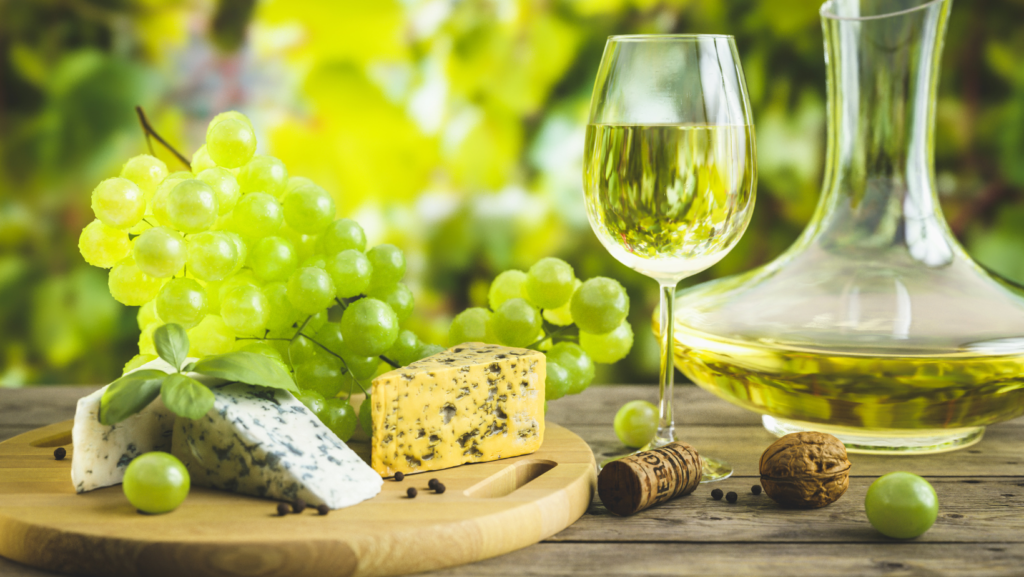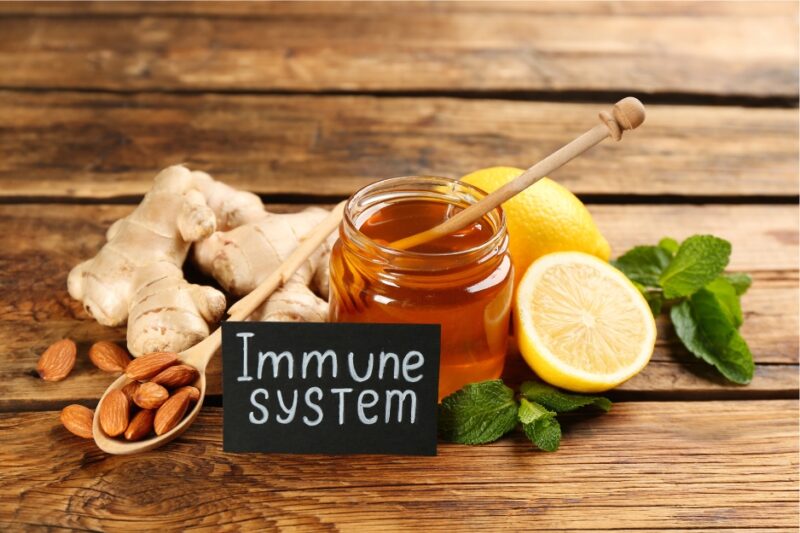Organically grown grapes produce organic wine. To cultivate such grapes, a vineyard manager should implement different practices to maintain their vines. Organic wine means there are no additives added to the wine or chemicals used in growing the grapes. Natural ingredients such as yeast, egg whites, and animal enzymes are allowed in organic wines. However, being organic doesn’t necessarily mean a bottle of wine is vegan.
This article has extensively discussed everything about organic wine, including red and white organic wine.
What Is Organic Wine?
Rightfully, “organic” has different meanings in different countries but generally excludes the addition of artificial chemical fertilizers, fungicides, pesticides, and herbicides. The second stage of winemaking, called fermentation, is where it gets more confusing.
During fermentation, ingredients added must be explicitly allowed for organic wines and cannot exceed 5% of the total product. Organic wines from the United States do not have sulfites, which in most scenarios significantly reduce a wine’s shelf life and, in some cases, can substantially change the flavor.
Wineries often face a dilemma because time spent growing organic grapes is lost after SO2(sulfur dioxide) is applied in the bottling line. Although wine naturally produces some sulfites, an artificial addition is not ideal. In Europe, the quantity of sulfites must not exceed 100 mg/liter for organic red wine to receive certification.

So if you want to avoid a bottle of wine with sulfites, drinking an organic wine from the US is preferable. Organic wines from European countries or North America contain sulfites; the choice to include them is left to the individual producer.
When buying a bottle of organic wine, bottles labelled “made with Organic Grapes” are advisable rather than “organic” because they could mean the grapes were grown organically and retained when harvested. Still, adding sulfites or non-native yeasts might occur during winemaking.
In addition to reducing sulfites in the bottle, organic winemaking bans any Genetically Modified Organisms (GMOs) or non-permitted additives. The most significant oversight from conventional winemaking is the lack of coloring agents, concentrated artificial additives such as Mega Purple, and flavoring agents such as malic acid and caramel.
What Is Non–Organic Wine?
Non-Organic grapes can use chemicals like herbicides and fungicides in the vineyards and other additives such as Sulfur or Mega purple in a wine.

It is common to see pesticides and fungicides used in areas that are low wind and have more moisture in the air which causes fungal infections (perhaps close to a water body). Various fungicides and pesticides are employed to kill invasive species.
For instance, a foreign bug called the glassy-winged sharpshooter is a carrier of Pierce’s Disease in Napa. This disease turns vines into lepers with rotting leaves and eventually kills them.
Is Sulfite In Wine Bad?
If you drink wine a lot, you will understand that wines don’t spoil quickly because of sulfites. Sulfites aid wine preservation and slow chemical reactions that cause wine spoilage. Using sulfites in wine began back as far as the era of ancient Romans.
Winemakers would also burn candles made of sulfur in empty wine barrels, called Amphora, to prevent the wines from turning to vinegar. During the early 1900s, instead of cleaning barrels, winemakers also used sulfur to stop bacteria and other yeasts from growing inside the barrels.
Although sulfur compounds are unrelated to sulfites, sensitive tasters have smelled sulfur compounds in wine. Sulfur compounds in wine are called “thiols,” ranging in flavor from citrus-like to cooked egg-like smells.
A fascinating fact is that the warmer the wine, the more molecular sulfur it releases. That’s why you may notice some wines have a nasty cooked-egg aroma when you open them. You can fix this by gradually pouring your wine into another container and leaving it to chill for about 15-30 minutes.
Is Organic Wine better for you?
Organic farming and winemaking produce organic wine. But you may wonder: why should I care, and why are people beginning to drink organic wines?
Since there is no manipulation in the field and cellar, the process leads to a wine that is arguably more real and natural. Organic wine is often the best expression of the grape and the complete natural environment in which it is grown.

The maxim, “you are what you eat (and drink),” could be related to wine. So, there’s an absolute peace of mind that comes with knowing that no pesticides or additives are going into your wine. Are organic wines a better choice? Of course, they are!
Organic wine grapes are all-natural, so they are much healthier and produce healthier skins and higher concentrations of all good chemicals such as anthocyanin, antioxidants, including polyphenols, and cardio-friendly resveratrol.
Furthermore, organic wines are free of residual traces of dangerous vineyard additives, chemical-laced pesticides, and herbicides. Certified organic wines also have less sugar and don’t contain potentially harmful cellar additives such as flavoring agents or caramel coloring. These additives with higher sugar levels typically lead to headaches.
Top 6 Benefits Of Organic Wine
1. Antioxidants

Organic red wine is especially rich in resveratrol – a polyphenol or powerful antioxidant in grape skin and juice. Antioxidants help your body fight off toxins and free radicals that can damage organs and cells.
Resveratrol promotes longevity and health by increasing the activity of sirtuins and proteins that protect your body against aging diseases. Several people advised that drinking wine may lead to longer life spans if consumed moderately.
So, if you want to improve your immunity against age-related diseases, make room for organic red wine in your diet. Organic white wine is also a great choice. Ensure to drink moderately!
2. Improve Brain Health

Our memory declines as we age and some people unfortunately will develop dementia. Organic wine has nutrients that may prevent memory decline and poor memory conditions.
Drinking wine can help reduce the risk of dementia, including Alzheimer’s, because of the high levels of resveratrol in wines. The antioxidant keeps blood vessels open to ensure the proper delivery of glucose and supply to the brain.
You might consider organic red wine if you want to enjoy drinking and making new memories.
3. Boosts Immunity

Researchers found that drinking wine daily may improve the immune system because it’s rich in antioxidants. Ethanol is a chemical component of wine and alcoholic beverages that helps boost the potency of vaccinations.
4. Improves Mood

Depression negatively impacts the way you think, act, and feel daily. Although it sounds contradictory, alcohol consumption – specifically a glass of wine occasionally has proven to help improve depression. However, you must drink moderately to avoid worsening the situation.
In addition, do not take an anti-depressant with wine. If you feel down and want to elevate your mood, you can drink a low carb wine like Champagne or a sulphite free wine like Cobble Creek Cabernet Sauvignon.
5. Promotes Healthier Skin

Drinking alcohol dehydrates the skin, but moderate consumption of organic wines may help improve the symptoms of skin aging. That’s because wines contain a high antioxidant content. Wine stimulates blood circulation which can prevent skin aging and wrinkling.
When applied directly to the skin, sulphite free wines can prevent acne-causing bacteria, rejuvenate skin, create a natural glow, and increase skin elasticity.
6. Organic Wines Hangovers Are Not So Bad

As discussed above, organic wines have fewer sulfites and artificial chemicals. Drinking organic wine will significantly reduce the effect of a potential headache, allowing you to enjoy a couple of glasses and still be fine till the next day.
As discussed above, organic wines have fewer sulfites and artificial chemicals. Drinking organic wine will significantly reduce the effect of a potential headache, allowing you to enjoy a couple of glasses and still be fine till the next day.
However, keep yourself hydrated while relishing different organic wines’ tastes and consume the recommended number of glasses.
Frequently Asked Questions
1. Is Organic Wine A Natural Wine?
No, organic wine is not automatically a natural wine. But natural wine is at least an organic wine. The organic farming certificate authorizes up to 150 mg/l of sulfites in wines and more than 80 oenological inputs. Although a natural wine pushes the approach much further, only 30 mg/l of sulfite is allowed.
2. Are Organic Wines Sulfite Free?
Organic wine is not necessarily a wine without sulfites. It is possible, but the organic farming label authorizes the vineyard manager to sell organic red wine with 100 mg/L of total SO2 and organic white wine and rose with 150 mg/L of total SO2. The words “no added sulfites” are written on the label to ascertain that it is a sulfite free wine.
3. Why Should I Buy Organic Wine?
Sulfites are among the 14 classified allergens that can cause headaches, nausea, and breathing difficulty. Therefore, drinking an organic or a low carb wine will reduce the health risks associated with sulfites since they contain less.
In addition, it encourages an agricultural practice that respects the environment and preserves biodiversity and soil fertility.
Conclusion
Health-wise, the benefits of organic wine are worth every wine lover’s consideration. Organic wines are beneficial to individuals and the environment. Although it may be challenging to have an organic vineyard and winery, the final product is worth it and your body will appreciate you making organic wine your choice.
If you are sensitive to sulfites in foods such as french fries, cured meats, cheese, and canned soup, you should try sulfite free wines. Or, eliminate wine if you are on an elimination diet. Fortunately, several organic wines do not use sulfites in processing.
Organic wine can taste different from what you’re used to, but some are fantastic! Give them a try and enjoy wine with less side effects and natural health benefits.



